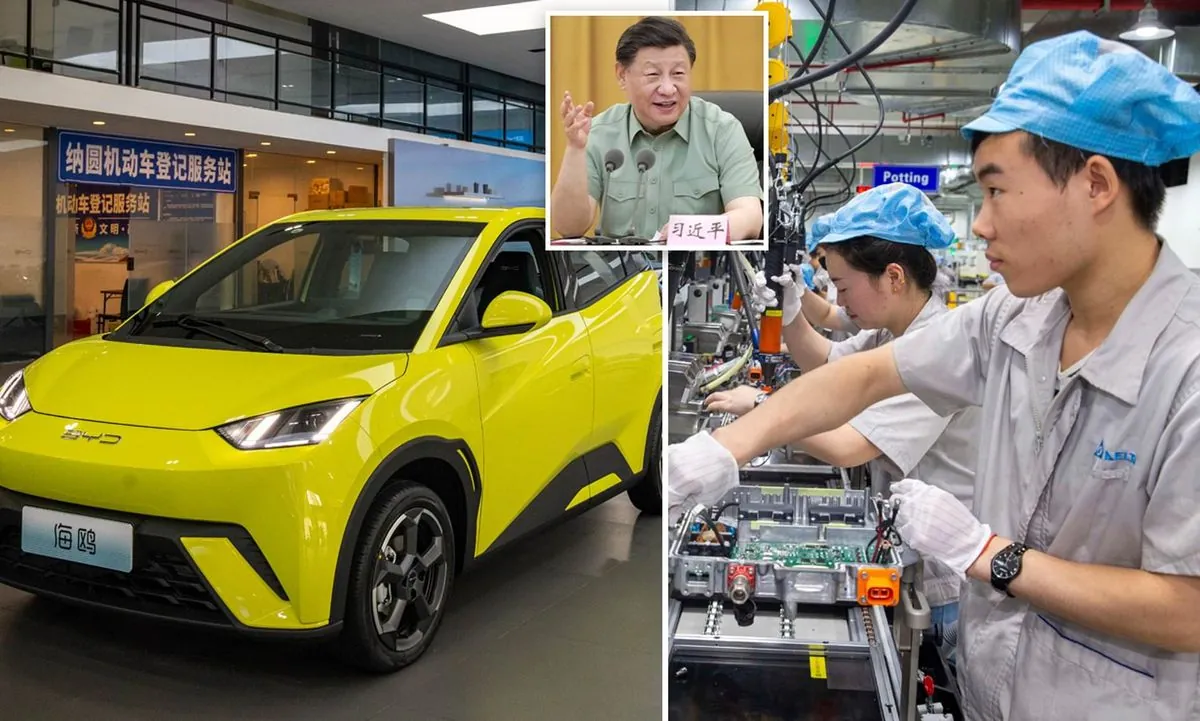UK Security at Risk: Chinese EVs Raise Concerns in Government Fleet
A think tank warns of potential security threats from Chinese-made electric vehicles in UK government use, citing data transmission and remote control risks. Calls for bans on certain manufacturers emerge.

A recent report by the China Strategic Risks Institute (CSRI) has raised significant concerns about the potential security risks associated with Chinese-made electric vehicles (EVs) in the United Kingdom. The think tank warns that these vehicles could be "weaponised" and recommends banning them from government use.
The primary concern revolves around the Cellular Internet of Things Modules (CIMs) installed in these vehicles. These modules, capable of transmitting and receiving data, could potentially send sensitive information back to China or even allow for remote control of the vehicles. This risk is particularly alarming given that China produces approximately 80% of the world's lithium-ion batteries used in EVs and controls about 80% of the global supply chain for rare earth elements crucial for EV production.
"The Government and the public appear to be unaware when it comes to the dependency, disruption, and data security risks the CIMs within Chinese EVs present to the UK."
The report highlights that unlike the United States and European Union, the UK has not implemented heavy tariffs on Chinese-made electric vehicles. This policy difference could potentially make Britain more vulnerable to any security issues associated with these vehicles. It's worth noting that the global electric vehicle market is projected to reach $823.75 billion by 2030, with China accounting for about half of global EV sales.

The CSRI's concerns are not unfounded, as evidenced by a revelation from last year. The Ministry of Defence disclosed that it had been using cars manufactured by MG, a brand owned by the Chinese state-owned SAIC group, in its non-operational "white fleet." This situation underscores the potential risks associated with the government's efforts to decarbonize its vehicle fleets.
To address these security concerns, the CSRI and the Coalition on Secure Technology are calling for a ban on EV and CIM manufacturers suspected of having ties to the Chinese government from bidding on public contracts. This recommendation comes as the UK government has set an ambitious target to end the sale of new petrol and diesel cars by 2030, with the country's electric vehicle market share reaching 16.6% of new car sales in 2023.
As the debate over Chinese EVs in the UK intensifies, it's important to note that electric vehicles have come a long way since their modern reintroduction in the 1990s. Today's EVs typically have 30-40% fewer moving parts compared to internal combustion engine vehicles, and their average range has increased from about 100 miles in 2011 to over 250 miles in 2024.
The UK government now faces the challenge of balancing its environmental goals with national security concerns. As it continues to offer grants and incentives to promote electric vehicle adoption, it must also carefully consider the potential risks associated with the technology's supply chain and connectivity features.


































